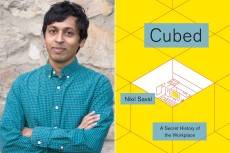May 8, 2015
The world’s enduring addiction to the joy and misery of commuting
 Commuting is one of the most complained about yet least explored facets of our working lives. This is in spite of the fact that it consumes so much of people’s time, energy and money, is presented as one of the main arguments for more flexible working practices and is so closely linked to our wellbeing. Yet the half a billion – and growing – commuters worldwide could be forgiven for assuming nobody is really that much interested in the effects of their daily grind into work, especially when you consider the attention given to other workplace issues. Douglas Langmead in his feature on page 32 of the new issue of Work&Place does his bit to redress this imbalance with a fascinating look at commuting in the rapidly developing and endlessly fascinating economies of the United Arab Emirates.
Commuting is one of the most complained about yet least explored facets of our working lives. This is in spite of the fact that it consumes so much of people’s time, energy and money, is presented as one of the main arguments for more flexible working practices and is so closely linked to our wellbeing. Yet the half a billion – and growing – commuters worldwide could be forgiven for assuming nobody is really that much interested in the effects of their daily grind into work, especially when you consider the attention given to other workplace issues. Douglas Langmead in his feature on page 32 of the new issue of Work&Place does his bit to redress this imbalance with a fascinating look at commuting in the rapidly developing and endlessly fascinating economies of the United Arab Emirates.








 In the latest copy of the Workplace Insight newsletter available to view
In the latest copy of the Workplace Insight newsletter available to view 


















May 11, 2015
Does declining productivity spell the end for IT and property directors?
by John Blackwell • Comment, Facilities management, Property, Technology, Work&Place
More →